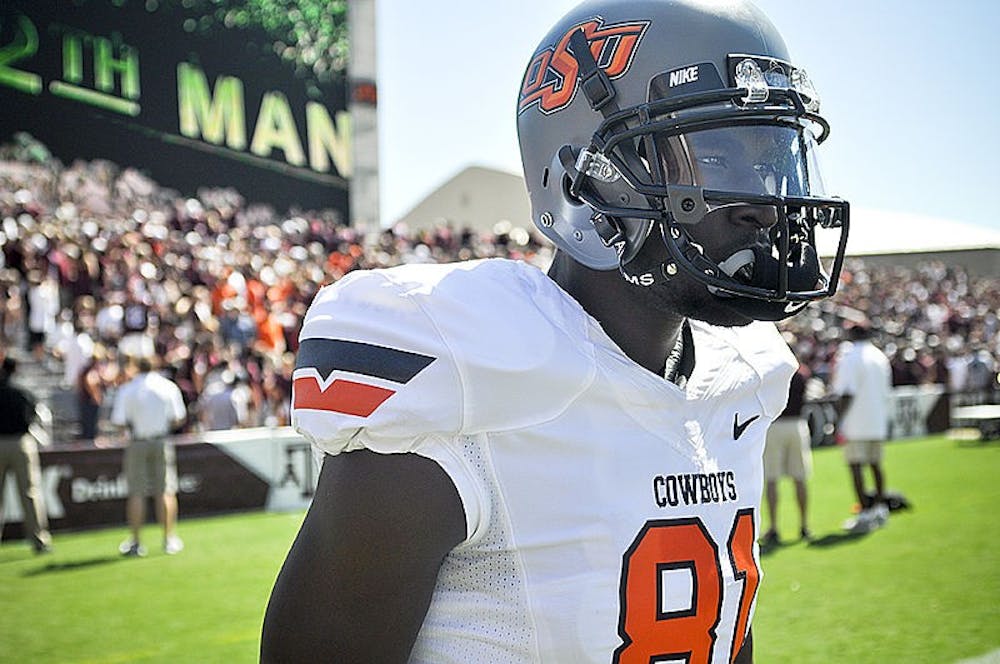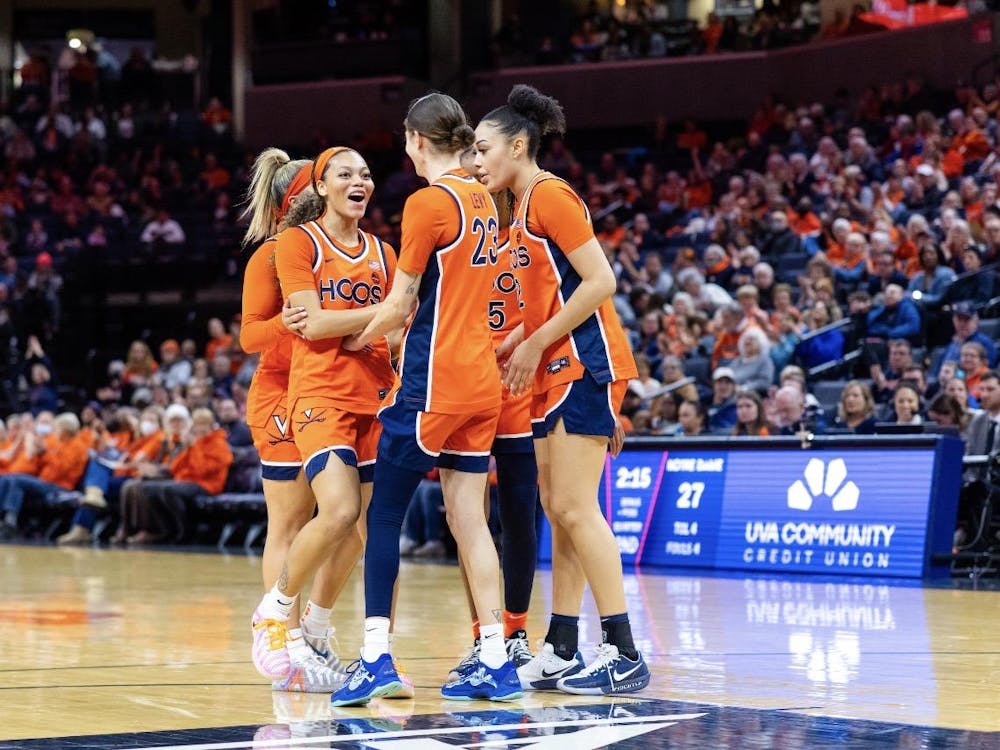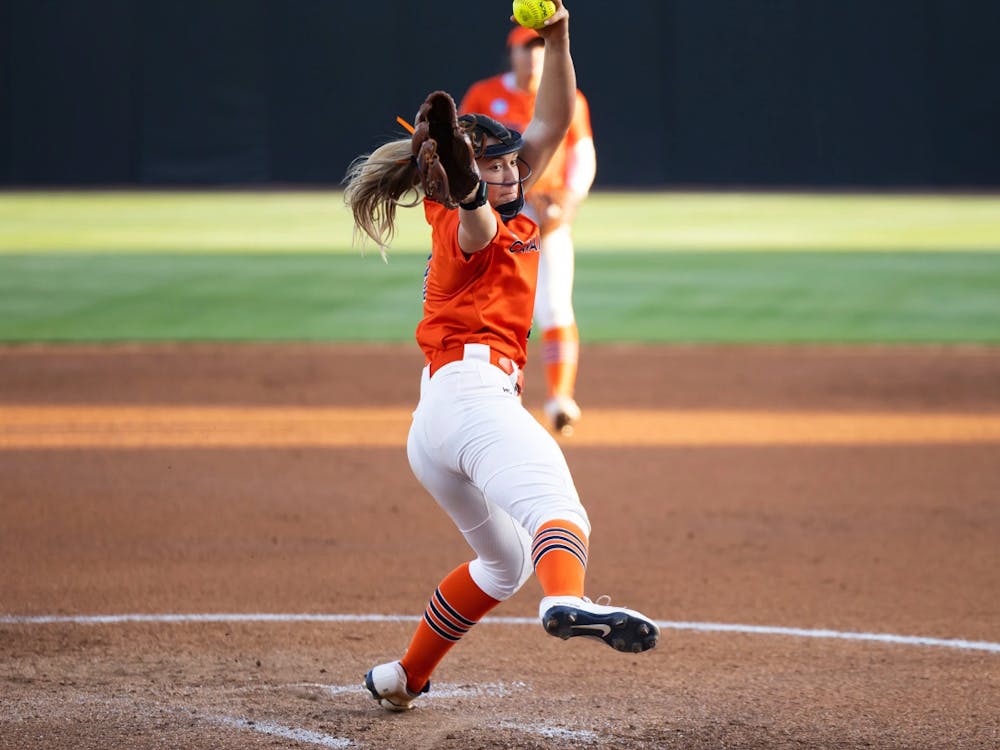Another day, another NCAA scandal. The collegiate sports world today is characterized by big name Universities coming under fire for breaking NCAA violations. This month’s lucky winner is the football program at Oklahoma State. The Cowboys seem to have hit the scandal jackpot, racking up accusations of improper payment, academic fraud, rampant drug use and inappropriate sexual contact with Oklahoma State’s “Orange Pride” hostess program, according to an extensive Sports Illustrated investigation. Money, cheating, sex, drugs: the only thing missing is rock ‘n’ roll. This scandal, like so many of its predecessors, damages the reputation of athletes and makes us seem universally unintelligent.
While Oklahoma State’s athletes allegedly did much more than cheat on some exams, I want to focus on the academic aspect of this controversy. Why? Ever since I decided to take part in a collegiate sport, I have repeatedly heard people criticize how easy higher education is for athletes.
Even without these recent scandals, athletes throughout the country already have had their fair share of critics with regards to academics — mostly with regard to the resources we can use that are not available to normal students. We athletes have access to our own free tutors, academic counselors and academic centers. So I can understand where these people are coming from. But it’s not as easy and magical as it sounds.
Let’s start with tutors. Their presence provides the most common basis for why people contend that athletes have it easy. Yes, we can get tutors for any class for free. The tutor meets with an athlete once a week throughout the semester. This tutor does not give us answers to any assignments or tests, but instead are there to answer any questions we have about the course and guide us in the right direction.
You know what else is free, available weekly and provides students clarification and guidance on coursework? A professor’s office hours. Office hours are available to all students, and since they are held by the people actually teaching the material they are arguably even more beneficial than a tutor simply familiar with the subject area. Our practice schedules don’t always allow us to go to office hours, so instead we have tutors. Big deal.
Meanwhile, the athletic academic coordinators assigned to every student-athlete help the athletes pick classes and make sure they are on the right track. It is no different from the academic advisors that are available to students who do not participate in athletics. Having these counselors does not make the course work any easier; they just help steer us in the right direction. The only difference is that we meet with them more and have counselors tailored to our needs as athletes. Yes, it is very convenient to have our own athletic counselors, and they do help immensely. But they’re not putting in the hours of study work, or supplying us with an unfair advantage over other students.
The JPJ Academic Center is enjoyable and convenient, but it doesn’t give athletes an advantage over regular students, either. It consists of a room full of tables, computers and printers. The only difference between the athletic academic center and a normal library for students is the free printing and and a nicer coat of paint on the walls. Neither benefit is reason enough to pin athletes as unintelligent jocks who enjoy a relaxed, laid back academic experience.
These resources help a lot, but considering we also have to obtain a certain GPA in order to be eligible to compete, these perks are mostly useful for helping us to cope with the higher standard we are held to. They level the playing field with other students, rather than creating a double standard.
Something else is very important to remember when evaluating an athlete’s academic experience: practices and competition.
The schedules confronting athletes ensure we are unable to make academics the sole focus of our time. With practice, lift schedules and competitions, the academics of the student-athlete comprise a very difficult process. My schedule doesn’t allow me to start my studies until after dinner time — and I am confident this applies to nearly every other student-athlete. I have my morning lift, class until practice time, practice until dinner, and then I can study. Trying to cram in every reading for every class between the hours of 7 p.m. and midnight is a demanding, if not impossible, task. And a midnight bedtime is crucial if athletes hope to perform well. It’s simple logic. Throw in all of the days of missed class because of travel time for competition and the barely possible verges on impossible.
With all this said, Sports Illustrated’s contention that athletes at Oklahoma State had personal people that did coursework for them is disappointing because it feeds the myth that student-athletes have it easy in the classroom.
Without question, numerous schools have been part of helping student-athletes cheat. Some athletes absolutely do cheat. However, normal students cheat, too. And it’s important to remember that in both cases the perpetrators are in the minority, and the academic journey is a rigorous one for most student-athletes. Don’t let the headlines distort your perception of us.







